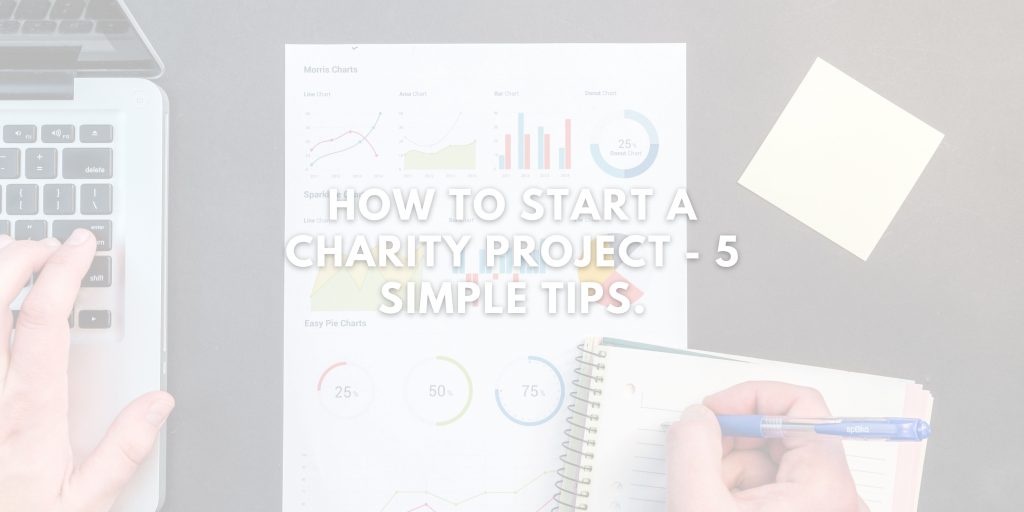A Comprehensive Guide To Starting Your Charity Project

Starting a charity project can be one of the most rewarding experiences of your life. It allows you to make a significant difference in your community or even the world. However, many people are unsure how to start a charity project that will be effective and sustainable. This guide will walk you through the essential steps, from identifying your cause to measuring your impact, ensuring you have the tools to turn your vision into reality.

Identifying Your Cause
The first step in starting a charity project is finding a cause that resonates with you. This could be anything from education to environmental conservation. Reflect on what issues matter most to you and your community.
For example, consider the story of Malala Yousafzai, who championed girls' education after experiencing firsthand the challenges of limited access to schooling. Her passion led to the establishment of the Malala Fund, which has positively impacted millions of girls worldwide.
Successful Charity Project Ideas
Here are some charity project ideas to inspire you:
- Local Food Drives: Collect and distribute food to those in need.
- Community Clean-Up: Organize efforts to beautify local parks or neighborhoods.
- Mentorship Programs: Pair youth with mentors to guide them in their academic and personal lives.
- Health Awareness Campaigns: Focus on educating the community about health issues, such as diabetes or heart disease.
- Animal Rescue Initiatives: Set up programs to help stray animals find homes.
Planning Your Charity Project
Once you have identified your cause, it’s time to create a project plan. A solid plan provides structure and direction for your charity project.

Creating a Project Plan
Start by defining your mission statement. This clear and concise statement will guide your decisions moving forward. Outline the goals, objectives, and target audience for your project.
Next, consider the resources you'll need—financial, human, and material. Break down your project into manageable tasks and assign deadlines to each.
Fundraising Strategies
Fundraising is crucial for the success of your charity project. You’ll need to determine how to secure the necessary funds to support your initiatives.

Online vs. Offline Fundraising Methods
Online fundraising has become increasingly popular due to its accessibility and reach. Platforms like GoFundMe and Kickstarter allow you to share your cause with a larger audience.
In contrast, offline fundraising methods, such as hosting events or selling merchandise, can create a strong local community connection.
Tips for Effective Fundraising
- Tell Your Story: Share personal motivations and the impact your project will have.
- Set Clear Goals: People are more likely to donate when they know what their money will achieve.
- Leverage Social Media: Use platforms like Facebook and Instagram to engage potential donors and share updates.
Engaging Volunteers
Volunteers are the backbone of most charity projects. Building a strong volunteer network can help you achieve your goals more efficiently.
Building a Volunteer Network
Start by reaching out to friends, family, and community members who share your passion. Use social media to promote your project and attract volunteers.

Consider using management tools, such as VolunteerMatch or SignUpGenius, to streamline the recruitment and scheduling process.
Measuring Impact
Tracking the success of your charity project is essential for understanding its effectiveness. Measuring impact helps you identify what works and what needs improvement.
Tracking Success Metrics
Establish key performance indicators (KPIs) that align with your project goals. For instance, if your project aims to improve literacy rates, you might track the number of students participating and their progress over time.

Use surveys and feedback from beneficiaries to assess their experiences and gather insights. This data will not only demonstrate your impact but also help you refine your approach.
Legal Considerations
Before launching a charity project, it’s vital to understand the legal requirements involved in starting a nonprofit organization. Each state has different regulations, so it’s essential to research the laws in your area.
Starting a Nonprofit
You’ll need to register your organization with the appropriate state agency and apply for tax-exempt status. Resources like the IRS website provide comprehensive information on the requirements and application process.
Consulting with legal experts or organizations like the Foundation Center can also provide valuable guidance.
Conclusion
Starting a charity project requires dedication, careful planning, and effective strategies. By identifying your cause, creating a solid project plan, implementing fundraising strategies, engaging volunteers, and measuring your impact, you can turn your vision into reality.
Now is the time to take action! Whether you choose to support a local initiative or tackle a global issue, your efforts can create meaningful change. Begin your journey today and make a lasting impact through your very own charity project!